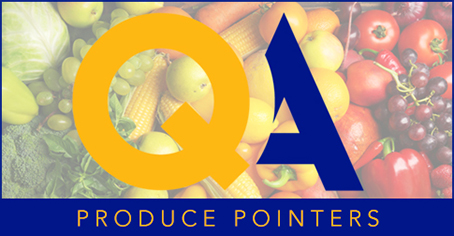Although it certainly appears the white onions were not particularly strong at shipping point, it must be remembered that shippers only promise to provide product that will hold up in transit under normal transportation conditions. Because air temperatures were not normal in transit, the condition of the white onions in Jacksonville does not necessarily prove a breach by the shipper.
However, given the short duration of the trip to Jacksonville, it appears to us that these onions may not have been shipped in suitable shipping condition, and that the carrier aggravated the problem by not properly maintaining air temperatures in transit. Therefore, for mediation purposes, we would suggest the shipper and the carrier split losses 50/50 or thereabouts.
To assess the losses (or damages), we take the difference between the market value of this commodity (the white onions) in good condition in Puerto Rico at the time, and the salvage returns realized from the sale in Atlanta, provided these returns are properly documented and reflect a “prompt and proper” sales effort.
From the resulting figure, USDA inspection fees and any cartage expenses required to take the white onions to the salvaging firm in Atlanta would need to be added. Lastly, any cost savings realized from avoiding the trip to Puerto Rico would need to be deducted; but here, it sounds as though there may not have been any savings if, in fact, space in the container used to ship the red onions went unfilled.
Your questions? Yes, send them in. Legal answers? No, industry knowledgeable answers. If you have questions or would like further information, email tradingassist@bluebookservices.com.



